
For those contemplating free camping it can seem a little daunting, but with a bit of preparation you may find it will be your favourite (and cheapest) way to experience a caravan holiday in Australia.
The phrase free camping can cover a few different options from roadside stops on highways, to more remote off the beaten track coastal camps, or even low cost camping where you pay a small fee via an honour box to stay in a council managed campground.
The one thing they all have in common is that free camping means no power, and sometimes if there are toilets there are usually no shower facilities or water to use, so being prepared and planning ahead is imperative. Here are 9 of my tips for having successful and enjoyable free camping adventures in a caravan.
Charge Up
To successfully free camp for a number of days you need 12 volt power in the caravan and a battery or batteries that can be charged from solar panels. Our caravan has a panel fixed on the roof and if we are expecting to free camp for a long period, we also carry extra fold out panels to boost the batteries.
The 12 volt power provides us with lighting, and we can also charge up our phones and iPads, but when it comes to my camera I make sure to charge the battery, and have a fully charged backup battery, before heading off.

Check that you have working torches on board in case you have to leave the van at night. We also have cheap battery operated strings of lights which when put into a lantern or jar act as outdoor lighting.
Fill Gas Bottles
The caravan fridge will run off gas when not connected to power, and gas is also used for cooking outdoors on a BBQ or inside on the caravans cooktop and oven. The gas also heats water so we can have hot showers while free camping. We have two gas bottles on board and as one empties it can be swapped and replaced.
Water
Fill your caravan water tanks and carry containers to top up if needed. Depending on space, you can carry another 20 or 40 litres in containers that are easy to carry and top up the caravan tanks and then refill as needed. Be water conscious and wash dishes once a day or use paper plates which can be burnt in a campfire later.
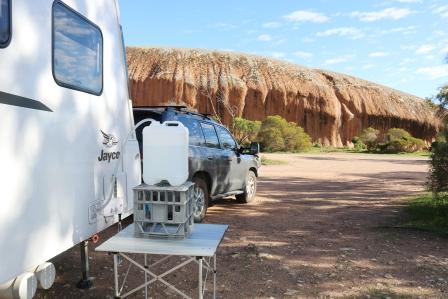
Buying a box of spring water for drinking and cooking will also conserve the onboard water supply.
Heating
Diesel heating is very effective and uses very little diesel giving you overnight comfort even in the coldest temperatures. If local regulations permit, a contained campfire is ideal and one of the big reasons why free camping is so popular. Carrying a brazier type fire container will be more efficient than an open fire.
Remember to bring your own bagged firewood and if you run out you can usually purchase more at hardware stores, petrol stations and other local providers in your travels.
Cooling
If you’re travelling at a particularly hot time of year you can use 12 volt fans that can be permanently fitted in the caravan, or have a freestanding larger fan to move air around and make sleeping easier.
Communication
Some free camping areas may not have any phone reception, so always make sure to let someone know where you are planning to go and for how long and make contact again when you can. We have found that most places we have stayed have some limited reception if you find the right places to stand. Phones that work via satellite can be purchased if you feel you need to have contact at any time. These phones work the same as a mobile and have different plans from pay as you go to monthly paid plans with call and text allowances included.
UHF radio is another useful form of communication to keep you in connection with other road users and if help is needed when mobile reception isn’t available.
We recently discovered some new and innovative ways to keep in touch with smart furniture provided in some rural areas. These seats are made from sustainable building materials and use the power of the sun to charge self-contained lithium ion battery systems and provide charging stations, wireless hot spot and Wi-Fi connectivity.
Carry Some Cash
Keeping a small amount of cash on hand is important as most of the honour box campsites only take cash deposited in envelopes with your details written on them. Some camping areas, especially those in National Parks can be booked online or by phone before you arrive but if phone reception isn’t available having a cash back up is important.
Some of the ‘free camps’ we’ve stayed at, are maintained by local councils and prices vary from $10 to $15 per night but for that you usually have clean ablutions, good access roads and designated campsites.
Cooking
If you want to conserve your gas supply you can also use a butane cooker. These handy burners take a butane canister which can be purchased at supermarkets, hardware stores and many other places in your travels. You can buy single or double burners and they are a quick and efficient way to cook stir fries, casseroles and any one pan meals.
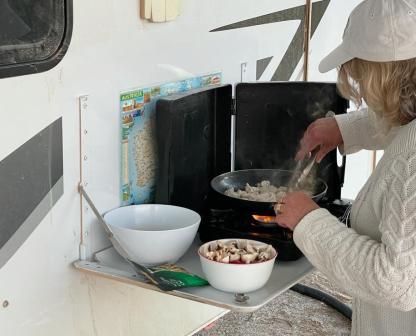
If you know you’ll be able to have campfires then throw in the camp oven for meals cooked over coals.
Security
The beauty of free camping is that you can often be isolated but if you do finish up camping with others, it’s usually a given that you won’t park too close to each other if there is enough space to spread out. You will usually find other like-minded people looking for the peace and privacy that this type of holiday affords but it always pays to keep the car and van locked, and items other than your basic chairs and table packed away if you venture away from camp.
If you stay in a paid camping area you will have a copy of the camping permit to display in the windscreen of your car, should a council ranger come past to check.
Happy Free Camping
Glenys



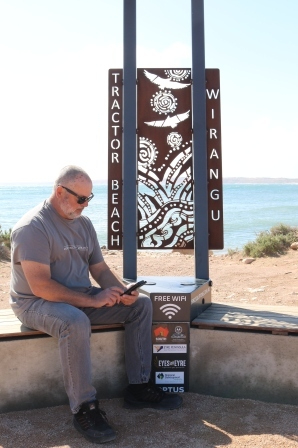
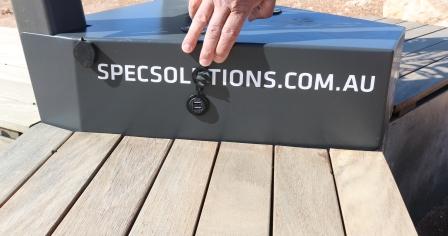
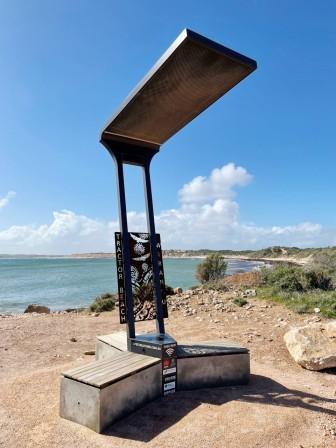
[…] 9 Top Tips for Free Camping […]
LikeLiked by 1 person
Thanks for sharing 👋
LikeLike
We love our free camping (which isn’t always free here in WA but it’s off the grid) and have done a fair bit this trip.
LikeLiked by 1 person
You’re right I think a new term is needed 🤔
LikeLiked by 1 person
I know how important water is when camping. I once ran out of water, and it was my most uncomfortable adventure ever
LikeLiked by 1 person
Absolutely THE most important resource to have.
LikeLike
Those new smart solar charging seats are great, though we found one that had been built under a nice shady tree. Whoops
LikeLiked by 1 person
😂
LikeLike
Good tips! We’ve only done a small amount of free camping so far but have loved it.
LikeLiked by 1 person
Thank you, of course you can do it with less than I’ve mentioned, but we’re all about comfort these days 😊
LikeLike
These are such fantastic tips, Glenys! Right now, many people are flocking to the caravan lifestyle. It can be overwhelming, the amount of information that’s thrown at you. Not only the gear, the weights, the packing – then there’s where to stay. While many travellers love to stay at caravan parks that can be holiday destinations in themselves, for others, there’s nothing better than finding a spot and setting up camp where there’s no 240V power or mains water in sight. Thanks for sharing and have a nice day 🙂 Aiva
LikeLiked by 1 person
Thank you Aiva, I’ve had a few people ask questions that are hopefully answered here. 😊 Have a great day too.
LikeLiked by 1 person